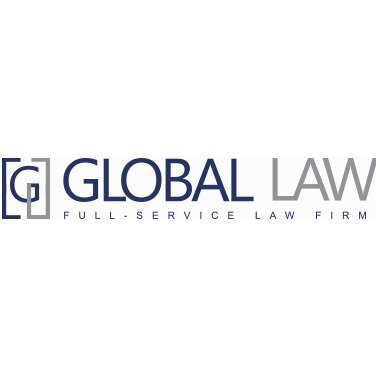Best Arrests & Searches Lawyers in Ukraine
Share your needs with us, get contacted by law firms.
Free. Takes 2 min.
Or refine your search by selecting a city:
List of the best lawyers in Ukraine
About Arrests & Searches Law in Ukraine
In Ukraine, the laws governing arrests and searches are primarily derived from the Constitution of Ukraine, the Criminal Procedure Code, and other relevant legislative acts. These laws are designed to protect the rights of individuals while empowering law enforcement agencies to maintain public order. Legal procedures dictate how arrests should be conducted, under what circumstances a search can occur, and what protections are in place for individuals during these processes. Ensuring that arrests and searches are conducted lawfully helps maintain trust in the legal system and safeguards citizens' rights.
Why You May Need a Lawyer
There are numerous situations where you might require legal assistance concerning arrests and searches. Common scenarios include being subject to an arrest or a search, needing to understand your rights during these processes, challenging the legality of a search warrant or arrest procedure, or protecting your rights if evidence is improperly collected. Legal advisors can provide guidance, represent you in court, and help ensure that all legal procedures are adhered to correctly, safeguarding your liberties under Ukrainian law.
Local Laws Overview
The key aspects of Ukrainian law relevant to arrests and searches include:
- Warrants: Legal searches typically require a warrant issued by a court, except in emergency situations defined by law.
- Rights upon Arrest: Individuals have the right to be informed of the reason for their arrest and their rights, including the right to a lawyer.
- Search Procedures: Law enforcement officers must follow specific procedures during a search to ensure legality and respect for individuals' rights.
- Evidence Collection: Any evidence gathered through an unlawful search can be challenged in court.
- Detention: Detained individuals must be brought before a court within a reasonable period for the legality of their detention to be reviewed.
Frequently Asked Questions
What should I do if I am arrested?
Remain calm, do not resist arrest, and request to speak to a lawyer as soon as possible. You have the right to remain silent and should be informed of your rights.
Can the police search my home without a warrant?
In most cases, a warrant is required to search your home. However, exceptions exist, such as exigent circumstances or if you give consent.
What are my rights during a police search?
You have the right to observe the search, receive a copy of the search warrant, and request the presence of witnesses during the procedure.
How can I challenge an unlawful arrest or search?
Contact a lawyer immediately, who can assist in filing a complaint or a motion to suppress evidence obtained unlawfully.
What constitutes reasonable suspicion for a search?
Reasonable suspicion is based on specific, articulable facts that a crime has been, is being, or will be committed, which justifies a search or frisk.
Can evidence obtained from an illegal search be used in court?
Generally, evidence obtained from an unlawful search is inadmissible in court under the principle of the exclusionary rule.
How soon should I contact a lawyer after being arrested?
You should contact a lawyer immediately after an arrest to ensure your rights are protected and to receive legal advice.
What happens if I am detained without charge?
You should be brought before a judge promptly to determine the legality of your detention. If held without charge, legal counsel can petition for your release.
Are there different rules for searches conducted by customs officials?
Yes, customs searches have distinct regulations, often with broader authority to carry out inspections without warrants at border crossings.
What is the role of a public defender?
A public defender is a lawyer appointed by the court to provide legal representation to individuals who cannot afford private legal counsel.
Additional Resources
For further assistance, consider reaching out to the following resources:
- The Ministry of Justice of Ukraine: Offers information on legal rights and procedures.
- Local Bar Associations: Can provide referrals to experienced criminal lawyers.
- Human Rights Organizations: Many organizations provide support and advocacy for individuals in legal distress.
- Legal Aid Centers: Provide free or low-cost legal advice and representation.
Next Steps
If you need legal assistance related to arrests and searches, follow these steps:
- Document all details of the incident, including times, locations, and names of officers involved.
- Contact a qualified criminal defense lawyer or a legal aid service for consultation.
- Gather any relevant documents, such as search warrants, court documents, or arrest records.
- Prepare any questions you may have for your lawyer to maximize the efficiency of your consultation.
- Follow your lawyer's advice and participate actively in your defense process by providing all necessary information and documentation.
Lawzana helps you find the best lawyers and law firms in Ukraine through a curated and pre-screened list of qualified legal professionals. Our platform offers rankings and detailed profiles of attorneys and law firms, allowing you to compare based on practice areas, including Arrests & Searches, experience, and client feedback.
Each profile includes a description of the firm's areas of practice, client reviews, team members and partners, year of establishment, spoken languages, office locations, contact information, social media presence, and any published articles or resources. Most firms on our platform speak English and are experienced in both local and international legal matters.
Get a quote from top-rated law firms in Ukraine — quickly, securely, and without unnecessary hassle.
Disclaimer:
The information provided on this page is for general informational purposes only and does not constitute legal advice. While we strive to ensure the accuracy and relevance of the content, legal information may change over time, and interpretations of the law can vary. You should always consult with a qualified legal professional for advice specific to your situation.
We disclaim all liability for actions taken or not taken based on the content of this page. If you believe any information is incorrect or outdated, please contact us, and we will review and update it where appropriate.
Browse arrests & searches law firms by city in Ukraine
Refine your search by selecting a city.














